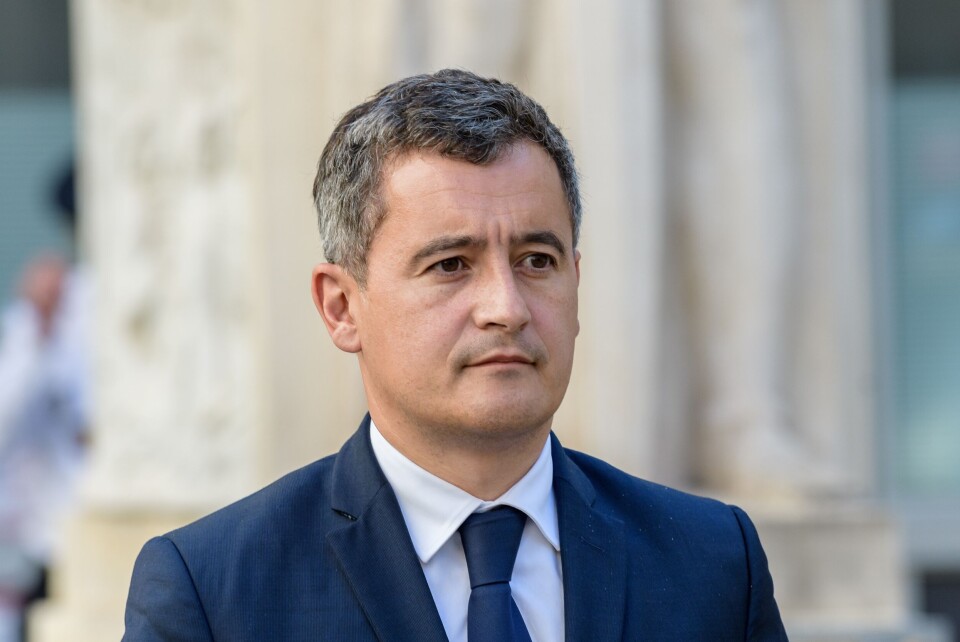-
Online ‘anti-waste’ supermarket offers deals on everyday items in France - we test it
Discounts of 10% to 50% available on brand products
-
The curious case of Good Friday: Why only some parts of France have the day off
Three French departments benefit from two extra public holidays
-
How long does it take to sell property in different areas of France? New study
Many major cities are showing signs of recovery when it comes to supply, demand, prices, and time to sell
France to develop ‘more demanding immigrant integration process’
The interior minister says he wants cartes de séjour to be subject to a language test and for applicants to accept the values of the Republic

France’s government has announced that it will develop a parliamentary bill on immigration and integration this autumn after a period of consultation with key authorities.
In an interview with Le Figaro, Interior Minister Gérald Darmanin said: “We hope to pick up speed in France: passing an in-depth reform of the organisation of asylum [applications], a much more demanding integration process for foreigners arriving in the country, a much needed reflection on the relationship between immigration and the economy, as well as a more uncompromising fight than ever against foreigners who commit crimes.
“On the request of the prime minister, from the end of August and in September, we will organise a consultation at Place Beauvau [where the interior ministry is situated], based on our proposals, with all parties, social partners, organisations and representatives from civil society.
“In October, we will introduce a big debate on immigration at the Assemblée nationale and the Senate, before a final parliamentary bill is presented. We have a text proposal, but for such a subject two months of consultation is needed.”
What would the government measures look like?
Mr Darmanin did not go into further details of the “more demanding” integration rules being considered by the government, but he has previously talked about imposing a language proficiency requirement on people applying for multi-year residence permits.
Read more: Plan for multi-year French residency cards to include a language test
It is likely that, if the proposals were implemented, people applying for such cartes de séjour would need to obtain a ‘certificate’ proving that they have a certain level of French according to the European Framework of Reference for Languages (CEFR) and that they “accept the values of the Republic”, Mr Darmanin said.
“To ensure the proper integration of each foreigner, we propose that a certificate proving mastery of the French language and acceptance of the values of the Republic, such as secularism or equality between women and men, should be a condition of the residence permit,” he said.
Currently, people wishing to secure a carte de séjour résident de longue durée - UE or carte de résident permanent must speak French to A2 level unless over 65.
This is still a beginner level of French, although more advanced than a complete beginner.
The CEFR levels go A1, A2, B1, B2, C1, C2.
Other carte de sejour holders do not have to do a language test. Brexit WA card holders also were not subject to any language tests.
People applying for French citizenship need B1-level French, meaning that they should be able to hold conversations within a controlled setting – for example ordering food in a restaurant, asking for and giving directions, or talking about their day, as well as being able to write basic texts.
Expelling foreign citizens committing crimes
Mr Darmanin has also outlined plans to remove a rule which currently prevents the state from expelling a foreign-born resident having committed a serious crime if they arrived in France before the age of 13.
Read more: French minister: We judge foreigners for what they do not who they are
Foreign citizens who commit crimes in France will be subject to “a sort of double sentence”: punishment then expulsion, he said.
Mr Darmanin told Le Figaro that 3,000 “foreign delinquents” had been deported over the last two years, adding: “We have made progress, but we must do better.
“We could therefore examine protections against deportation which benefit some categories of foreigners, depending on their age when they arrived in France or their marital status.”
“We do not judge foreigners for who they are but for what they do. If they want to integrate into life in the Republic, they are welcome.
“If they do not respect our values and our laws, they must leave.
“Today, foreigners represent 7% of the French population and commit 19% of the crimes. Refusing to see this would be denying reality. But it would be false to reduce delinquency down to foreigners [alone].
“In Lyon and Paris, 39% and 48% respectively of crimes are committed by foreigners, often serial offenders who have nothing to do in our territory and whom I will work to expel.”
The interior minister also proposed that the government could reduce the number of days a person has to leave France after being served an order to that effect from 30 to 15. Asylum refusals could also be automatically accompanied by a notice telling the person to leave the country.
He added that appeals from foreign citizens can “multiply and last several years. This is way too long,” he said.
“These time frames enable some to disappear into thin air. We propose simplifying the rules on appealing [...] significantly reducing the number of possible procedures.”
On the subject of people who arrive in France illegally with the help of people smugglers, Mr Darmanin said that the prison sentence served to those involved with such smuggling gangs should rise from 10 to 20 years.
Related articles
Do you need a language certificate to obtain a French residency card?
France to open first training centre for police who attend protests
























